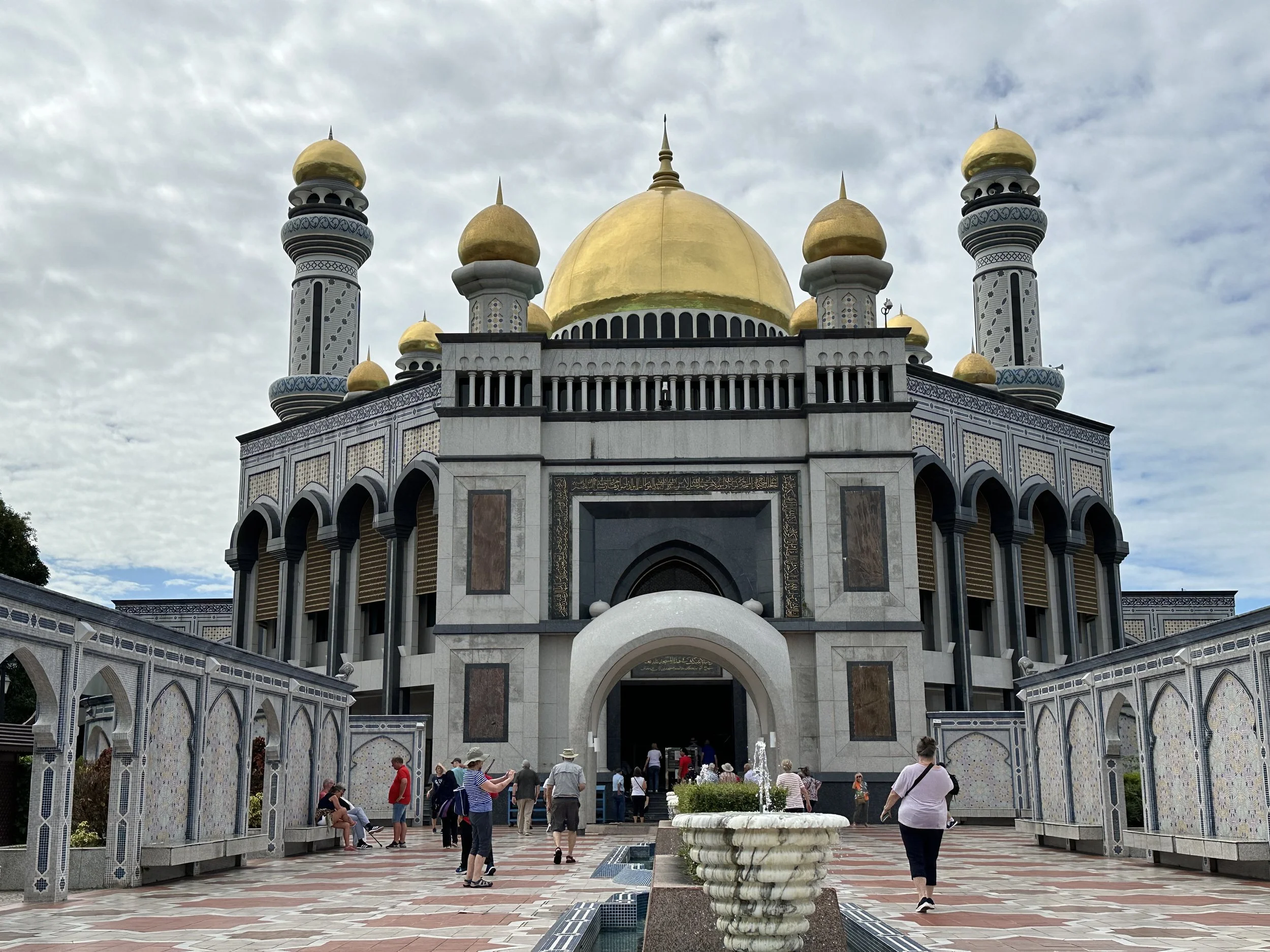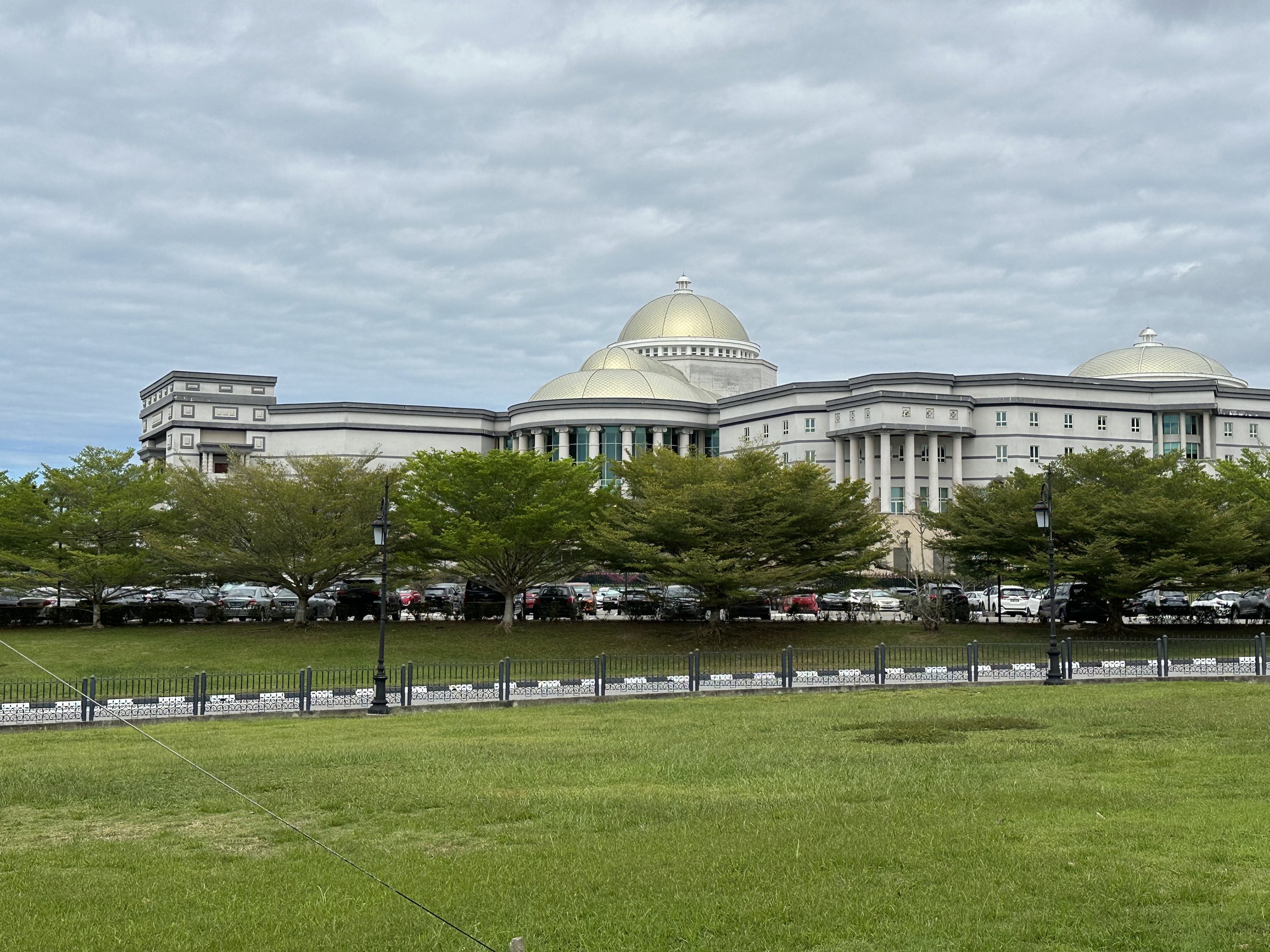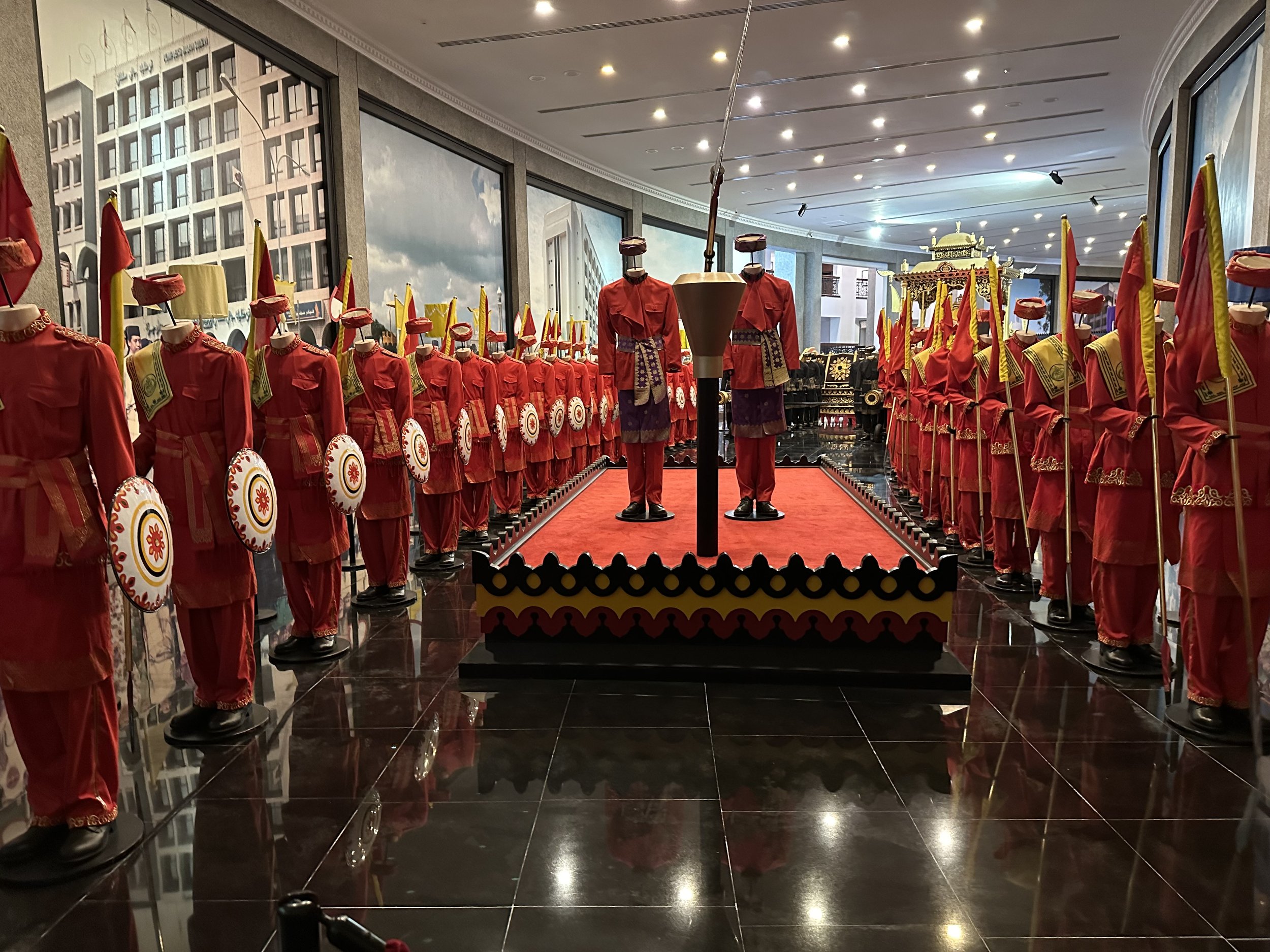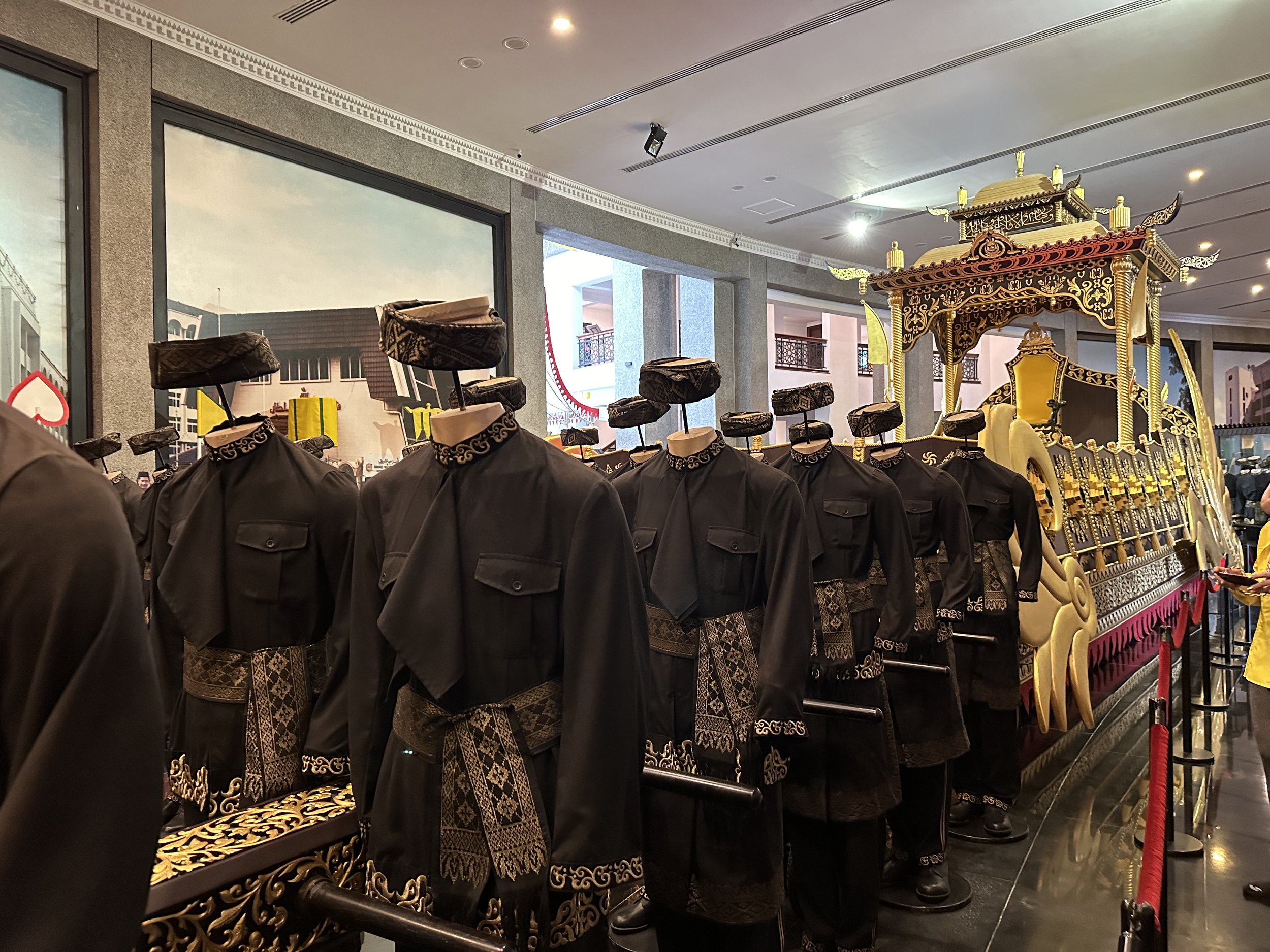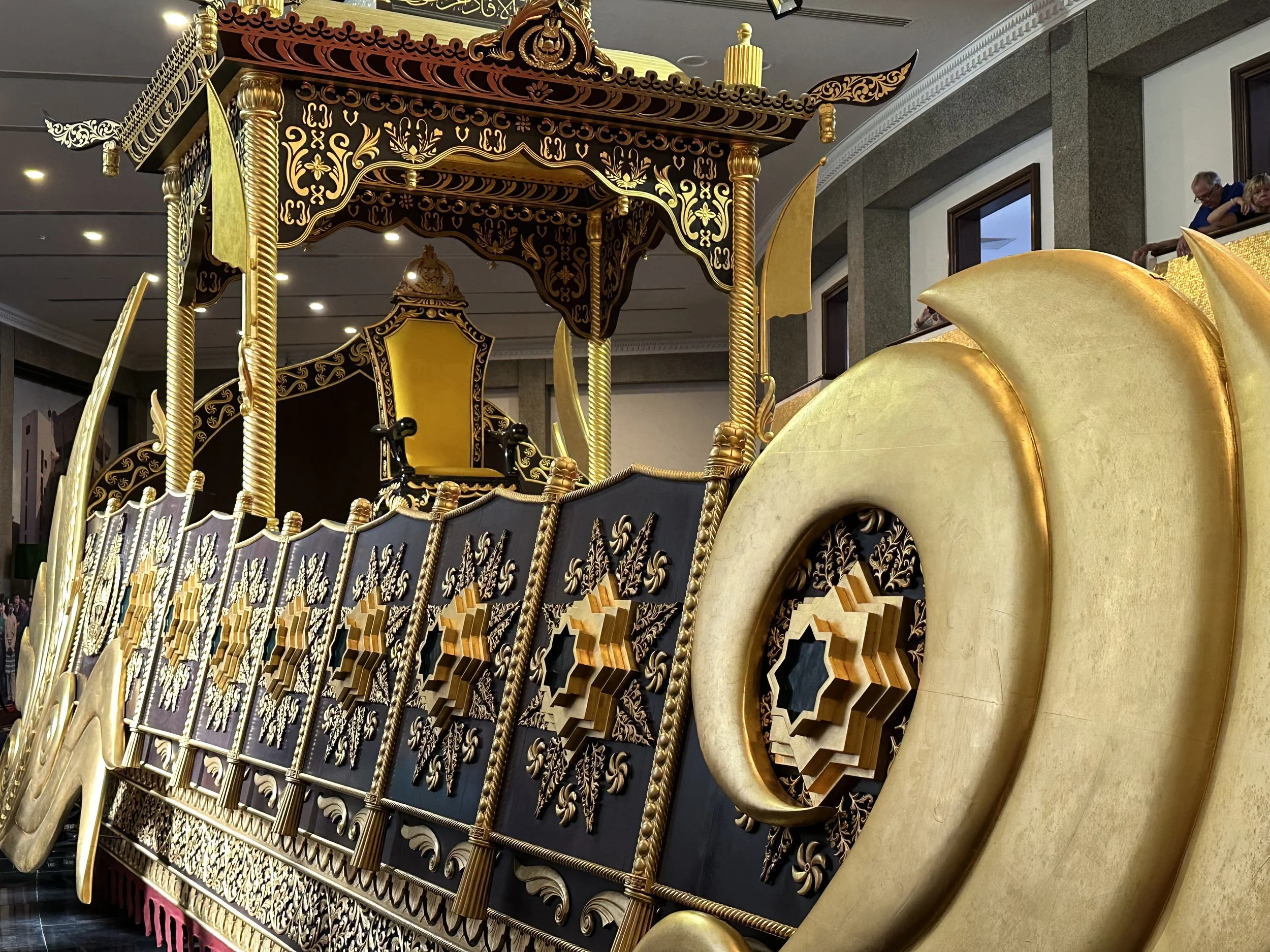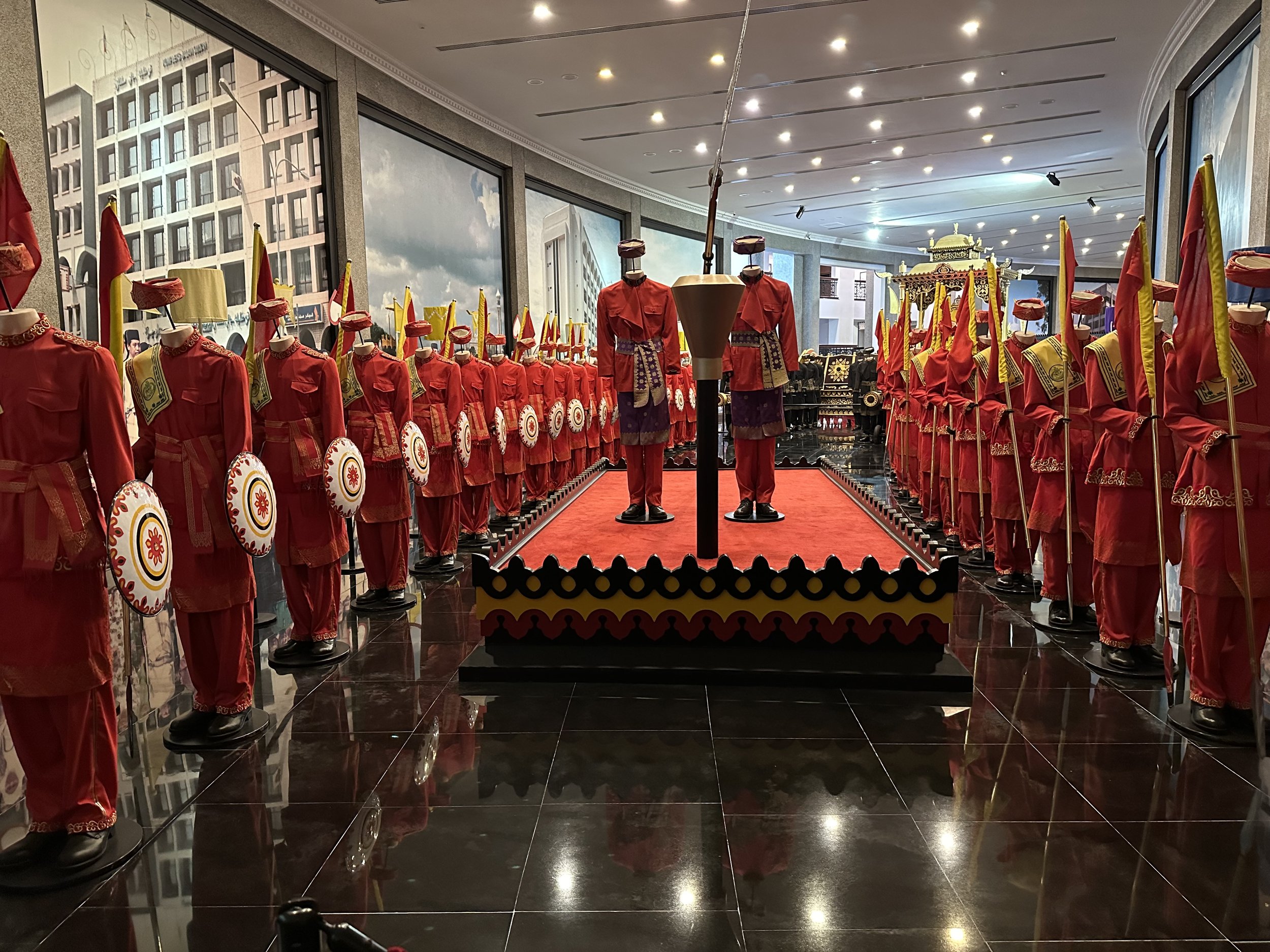Maura - Sultan of Brunei.
Maura Sultan of Brunei
This was an interesting visit on our 3rd day. Maura is a port town in Brunei-Maura District , Brunei about 17 mile from the Capital Bandar Seri Begawan. The population of this town is about 2,102 (2016) and there has been small growth since. It is home to Maura Port the country’s primary Deep water port.
Maura is the Malaya name for river-mouth and is where the large river entrance to Brunei is located.
Before the 1900’s Maura was known and inhabited by a small fishing goups of Malay fishermen.
There was rapid economic growth in the 1880’s to mine coal which was used as an export to fuel passing steamships.. Later under the government of Sarawak the area around the settlement was developed further and was named brooketon, after Charles Brooke the White Rajah of Sarawakin 1889.
Brooketon Colliery and coal mine also led to an explosion in growth of transport and infrastructure development in the Maura area.
A wooden railway was constructed to ship the coal and good to Maura deep port and wharves and jetties were constructed to allow Steamships and large barges to berth. Historically this period to 1911 saw significant growth and over time Brooke became the de facto political leader , despite only having Economic privileges. The Coal mines employed hundreds of people as miners and compelled Brooke to introduce other administrative=tive roles and functions such as police a post office and a broader road network through the area.
It was not until 1924 that Maura was returned to Brunei and the mine closed in 1924 because of heavy financial losses by the worldwide decreasing prices of coal during the Depression of the late 1920’s.
Brunei was occupied by the Japanese during World War 11 and they unsuccessfully attempted to reopen the coal mine. Brooketon was the landing place for the Austrrealian forces as part of the Borneo Campaign at the end of World War 11, which led to the liberation of Brunei from Japanese occupation.
We participated in an afternoon Ship’s tour, which was worthwhile and highlighted the immense wealth of the Sultan and his family and associates primarily based upon the oil resources. however, we were also surprised that the wealth is disproportionately controlled through the Sultan and his family and average members of the community whilst provided with health care live a life without the financial benefits of the oil wealth and reserves.
